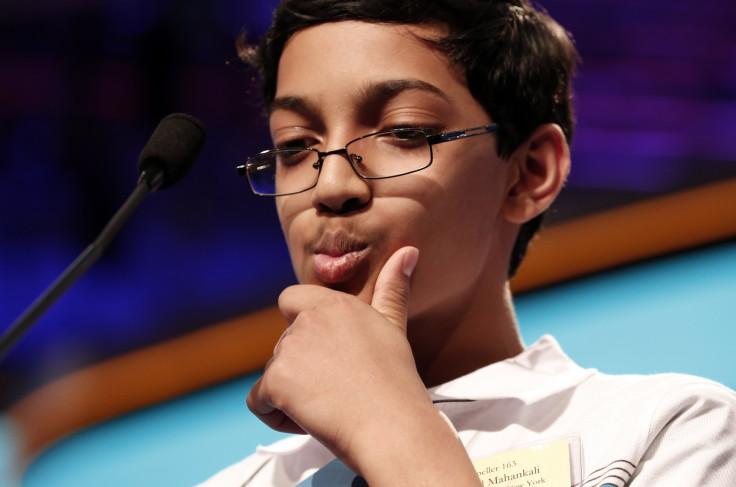Spelling Bee Blues: Indians’ Domination Only Reasserts Negative Stereotypes

An American boy of East Indian descent named Arvind Mahankali from Queens, N.Y, won the Scripps National Spelling Bee on Thursday night.
Mahankali is something of a “Willie Mays” of spelling, as he finished third in the past two years of this competition, according to the New York Daily News, before landing the top spot in 2013.
The 13-year-old lad was given a trophy -- he won by correcting the spelling of the word “knaidel” (which is a German-Yiddish word meaning “matzo dumpling”).
Arvind, a veteran of four spelling bees, is now calling it quits, but he may have started a dynasty -- his 9-year-old brother, Srinath, says he, too, wants to be a spelling bee champion. (Sort of like a geeky version of Peyton and Eli Manning, perhaps).
Even ESPN wrote about the spelling bee, which, by the way, was televised.
Indian-Americans have dominated spelling bees for at least the past fifteen years, maybe longer. The second-place finisher this year was Pranav Sivakumar of Illinois.
In fact, according to Scripps’ spelling bee website, of the top eleven finalists in this year’s competition, eight were children of Indian descent, including five of the top six spots.
And who won the spelling over the past five years going back to 2008? You guesses it, all Indian kids.
Also, Indians have won the title in 11 of the past 15 years. That’s a better record than the New York Yankees or Boston Celtics during their best dynastic years. (Consider that Indians make up less than 1 percent of the U.S. population).
Pawan Dhingra, a curator at the Smithsonian Institution's Asian Pacific American Program, told NPR: "The fact that Indians would ever win is noteworthy. The fact that they would win more than once is impressive. But the fact that they would win at such a dominating level becomes almost a statistical impossibility. It's phenomenal, really. There is more than randomness going on."
Slate magazine suggested that the reason Indians perform so well in spelling bees is that their parents train them vigorously for such competitions in what amounts to a kind of “minor league” of spelling competitions.
But with all due respect to young Mahankali and all the other Indian kids who compete in spelling bees, let me say that, as someone of Indian descent myself, I am sick and tired of the image propagated by these spelling bees.
It is no secret that Indians, like Koreans, Jews and Japanese, are regarded as a “model minority” and that they (we) are disproportionately represented in higher education and in prestigious high-paying careers like medicine, engineering, software, etc.
It is also no secret that Indian parents relentlessly pressure their children to perform well academically and to pursue “suitable” and “respectable” careers thereafter.
And so this is why I detest these spelling bees and everything they represent: First of all, the ability to correctly spell obscure words (which almost no one in their right mind will ever use in conversation) does not necessarily denote intelligence.
All it does is reflect one’s ability to memorize, which may be useful in test-taking, but has little application or relevance in the outside world.
A computer can memorize, too, but it has no soul and no creative or analytical abilities.
I suppose if I spent six hours a day memorizing how to spell bizarre words, I could do pretty well in bees, too… but why would I bother to do so?
Spelling correctly also does not indicate whether one can write properly, or even think independently (in fact, it may suggest something to the contrary).
But worse than the relative uselessness of spelling is that fact that spelling bees are … how can I put this gently… geeky, unexciting, nerdy and unsexy.
Indian people in the U.S. already suffer from this unfortunate image, and these spelling bees only intensify this misconception.
I, for one, would feel far more proud and “empowered” if this country produced an Indian athletic superstar, a macho Hollywood movie icon, or a rock and roll legend. Then, I will think that we have really “made it” in this country.
Until then, if all I have to look forward to is spelling bee champions, I’d rather just drown my sorrows in a bowl of knaidel soup.
© Copyright IBTimes 2024. All rights reserved.











